Assessing the education system in Romania
Romanian education system makes impressive strides to meet the challenges of the 21st century.

Christine Leșcu, 10.05.2017, 13:48
Undergoing a long series of changes over the past 20 years, the latest one being operated at the level of school curricula, the Romanian education system has made impressive strides to meet the challenges of the 21st century. One such challenge is the system’s self-assessment mechanism, which actually means the assessment of the teaching staff’s activity and of the results obtained by pupils and students.
A recent survey conducted by the relevant Romanian authorities, jointly with UNICEF and the OECD (the Organisation for Economic Cooperation and Development) is actually analysing the process of assessment and evaluation in the field of education. Under the current education law, pupils in the pre-tertiary education system have to be assessed several times starting from the second grade, and continuing in the fourth grade, then in the sixth grade to end with the National Evaluation in the eighth grade. The marks obtained at the national evaluation count for high school admission. Considered the most important test taken by pupils of up to 14-15 years of age, the National Evaluation has sparked controversy.
Ioana Băltăreţu, a member of the National Pupils’ Council will try to describe some of these controversies: “Relative to our assessment, the National Pupils’ Council has noticed that much too often the focus was on subject matters included in the national exams. In their current form, these exams encourage pupils’ memorisation abilities to the detriment of their reasoning abilities. Some 40% of 15-year-old pupils in Romania are functional illiterates, as shown by the results recently made public by PISA, the Program for International Student Assessment. Although they are able to read, pupils do not understand much of what they read because of improper teaching and learning methods, which focus too much on memorisation.”
If along the school years, children and adolescents go through various assessment stages, they would like, in their turn, to assess the way in which they are being educated and treated in school.
Ioana Băltăreţu: “We consider that pupils are not involved enough in the internal assessment process. If we look at the activity of the pupils’ representative in the School Council, in various school assessment and quality monitoring commissions, or in the anti-violence committees, we can say that in some 97.5% of the cases pupils cannot express their opinion on a series of issues, not to mention that they are not even invited to attend discussions. The legislation in force and the rights of the pupils’ representatives should be observed. We consider that it is absolutely necessary for these evaluations and assessments to be more than a formality. They should start being regarded as a mechanism which can consolidate a good quality educational system, to the benefit of all.”
The way in which tests can prove their efficiency has made the object of the aforementioned survey “Evaluation and assessment in the Romanian education system”, conducted by UNICEF, jointly with the OECD. The starting point for this survey is a not-very-satisfactory reality. In 2015, as compared to 2012, Romanian pupils reported progress in the PISA tests, but the situation is different with the “Sciences” chapter. For instance, 38.6% of the 15-year-old pupils did not perform well, getting results below level 2, that is below the basic level of knowledge allowing them to function efficiently in society.
Starting from this situation, the questions are: how can we assess, through exams and tests, the real value of pupils and what can we do to help them improve their results? According to the authors of the survey, the answer is to make the education system more flexible. School should become not only the place where high performance is reached, a fact that Romania has proved it is capable of, but also a place of inclusion, where all pupils acquire the skills and knowledge required on the labour market. According to Andreas Schleicher, OECD Director for Education and Skills there is, still, room for improvement.
To the Romanian authorities, the most important aspect of the UNICEF-OECD survey is the recommendation that these assessments in the pre-tertiary system should be regarded as having a formative character, and not as an instrument to make classifications, education minister Pavel Nastase has said.
Pavel Nastase: “We should change our approach and regard these assessments and evaluations of pupils, of the teaching staff, of schools and of the whole system as an opportunity to receive feedback and intervene, in an effort to improve the educational process and to place the focus on pupils. We would like our teaching staff to be well prepared to make formative evaluation during classes, and not only to give pupils quizzes, tests, exams and national evaluations. This is how we can ease the pressure exerted on pupils, giving the chance, even to those who find it difficult to pass classical tests, to show what they know. Consequently, a very important element of this survey is the formative evaluation component. In the end, this type of assessment and evaluation should lead to the creation of personalised education files for pupils to be properly trained and taught afterwards. We are currently making assessments, but in many schools this is not followed by a second stage, at which the teaching staff should capitalise on these evaluations to customise the learning process for pupils and focus on each of them”.
In order to reach this goal, the Education Ministry is currently drafting several EU-funded programs for the pre-graduate and academic education systems, laying emphasis on the evaluation of pupils and of the teaching staff.






























